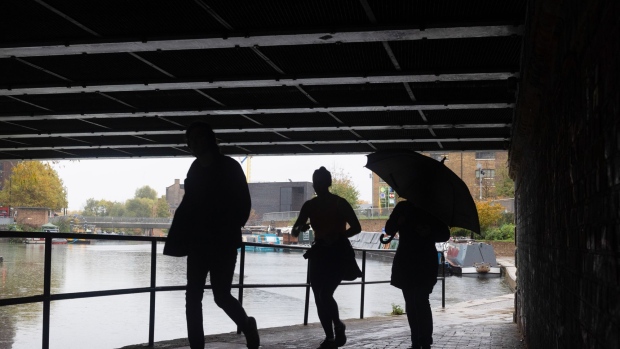Feb 7, 2023
UK Job Recruiters See First Increase in Vacancies in Nine Months
, Bloomberg News

(Bloomberg) -- Demand for workers accelerated for the first time in nine months in January, piling pressure on the Bank of England as it tries to tame inflation.
The move recorded by the Recruitment and Employment Confederation and KPMG marks a sharp reversal from declines in job vacancies over the past eight months as companies took in the workers they scrambled to hire after pandemic lockdowns.
The figures add to upward pressure on wages, which policy makers at the central bank are watching for signs that worker pay feeds into a more generalized inflation across the economy. The BOE lifted interest rates at each of its past 10 meetings, and investors expect at least one more increase by the middle of this year.
REC said the survey also points to the potential for a shallower downturn than has been forecast by the BOE. The economy grew unexpectedly in the fourth quarter, confounding forecasts that a recession was already underway.
“January’s recruitment activity suggests that speculation about a shallower economic downturn may be justified,” Neil Carberry, chief executive officer of REC, said in a statement Wednesday.
The report underscores tightness in the labor market that’s limiting the ability of the UK economy to grow without sparking a fresh bout of inflation. Carberry said the government needs to find ways to bring more people into work after more than half a million people dropped out of the jobs market since the pandemic.
“From skills to tackling economic inactivity, and from immigration to childcare, there is much that can be done in partnership with business to help our economy grow and workers to prosper,” Carberry said. “Ahead of the budget, the Chancellor should put the people stuff first across the whole of government.”
Though higher demand from employers is helpful for workers, policymakers in the central bank are concerned that this is leading to more generous wage settlements, which in turn pushes up prices as workers have more to spend. With the cost of living rising faster than inflation, millions of public services workers from nurses to teachers and border control staff walked off the job in recent weeks to push for higher pay.
Two members of the BOE’s rate-setting Monetary Policy Committee – Huw Pill and Catherine Mann – said last week that they wanted to see pressures on the labor market beginning to ease before they felt comfortable calling a “turning point” in interest rates.
Last week, Pill said that the UK economy needed to “take some medicine now” and risk a mild recession and higher unemployment to cure the inflation “virus.”
KPMG and REC said a “more cautious approach to staff hiring was evident at the start of 2023,” with economic uncertainty and cost pressures weighing on businesses.
Permanent staff hires fell for the fourth month in a row, though at a slower rate than the previous three months, while billings for temporary workers increased slightly.
And while starting salaries continued to climb sharply, the rate of this inflation was the slowest in 21 months.
“The jobs market remains volatile” because of worker concerns about job security and a shortage of candidates to fill posts, said Claire Warnes, partner in skills and productivity at KPMG UK.
©2023 Bloomberg L.P.






